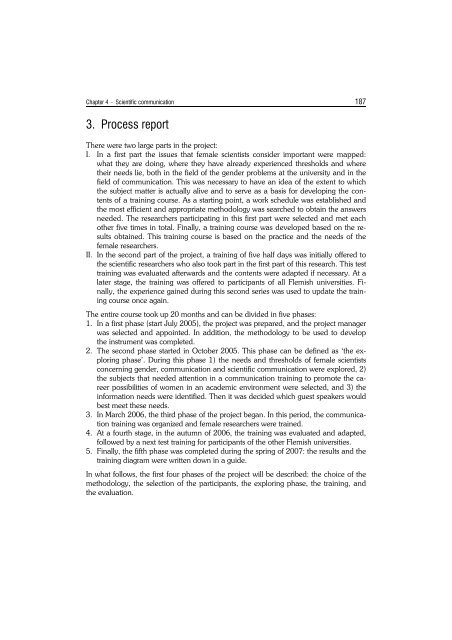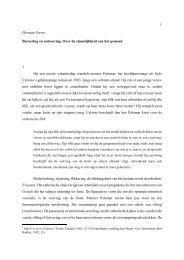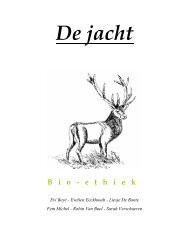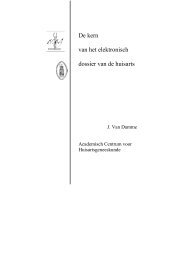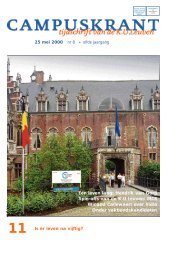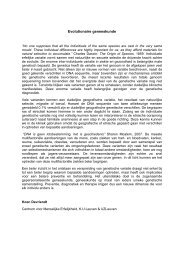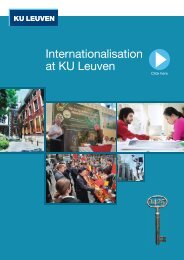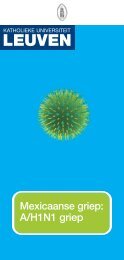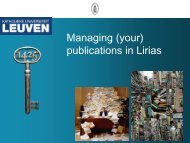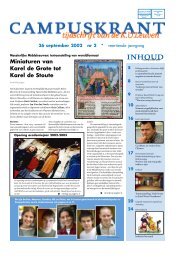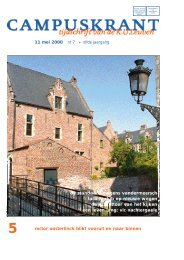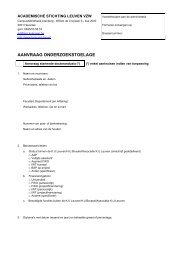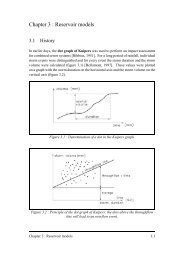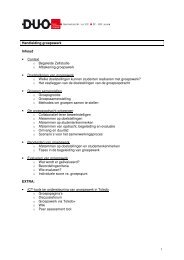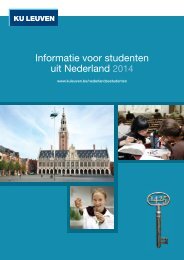EQUALITY GUIdE - KU Leuven
EQUALITY GUIdE - KU Leuven
EQUALITY GUIdE - KU Leuven
Create successful ePaper yourself
Turn your PDF publications into a flip-book with our unique Google optimized e-Paper software.
Chapter 4 ! Scientific communication 187<br />
3. Process report<br />
There were two large parts in the project:<br />
I. In a first part the issues that female scientists consider important were mapped:<br />
what they are doing, where they have already experienced thresholds and where<br />
their needs lie, both in the field of the gender problems at the university and in the<br />
field of communication. This was necessary to have an idea of the extent to which<br />
the subject matter is actually alive and to serve as a basis for developing the contents<br />
of a training course. As a starting point, a work schedule was established and<br />
the most efficient and appropriate methodology was searched to obtain the answers<br />
needed. The researchers participating in this first part were selected and met each<br />
other five times in total. Finally, a training course was developed based on the results<br />
obtained. This training course is based on the practice and the needs of the<br />
female researchers.<br />
II. In the second part of the project, a training of five half days was initially offered to<br />
the scientific researchers who also took part in the first part of this research. This test<br />
training was evaluated afterwards and the contents were adapted if necessary. At a<br />
later stage, the training was offered to participants of all Flemish universities. Finally,<br />
the experience gained during this second series was used to update the training<br />
course once again.<br />
The entire course took up 20 months and can be divided in five phases:<br />
1. In a first phase (start July 2005), the project was prepared, and the project manager<br />
was selected and appointed. In addition, the methodology to be used to develop<br />
the instrument was completed.<br />
2. The second phase started in October 2005. This phase can be defined as ‘the exploring<br />
phase’. During this phase 1) the needs and thresholds of female scientists<br />
concerning gender, communication and scientific communication were explored, 2)<br />
the subjects that needed attention in a communication training to promote the career<br />
possibilities of women in an academic environment were selected, and 3) the<br />
information needs were identified. Then it was decided which guest speakers would<br />
best meet these needs.<br />
3. In March 2006, the third phase of the project began. In this period, the communication<br />
training was organized and female researchers were trained.<br />
4. At a fourth stage, in the autumn of 2006, the training was evaluated and adapted,<br />
followed by a next test training for participants of the other Flemish universities.<br />
5. Finally, the fifth phase was completed during the spring of 2007: the results and the<br />
training diagram were written down in a guide.<br />
In what follows, the first four phases of the project will be described: the choice of the<br />
methodology, the selection of the participants, the exploring phase, the training, and<br />
the evaluation.


